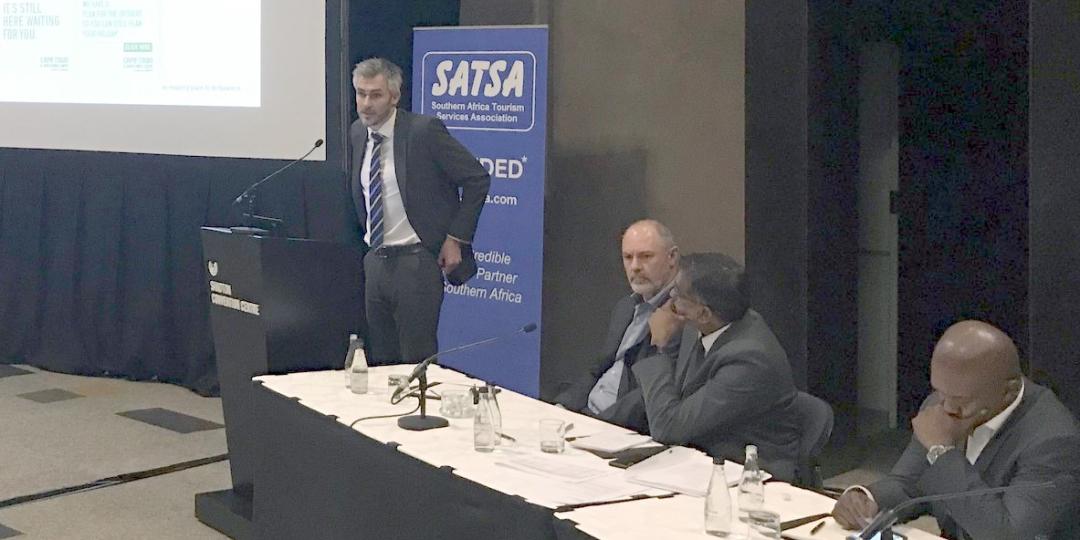At a press briefing in Johannesburg today (February 7), tourism heads of industry had a strong message that Cape Town is open for tourists.
The briefing was attended by SA Tourism CEO, Sisa Ntshona; Wesgro CEO, Tim Harris; Satsa CEO, David Frost; COO Tsogo Sun Hotels, Ravi Nadasen; and Hospitality Property Fund (HPF) CEO, Keith Randall, and was followed by a presentation and engagement with the tourism industry.
Ntshona voiced frustration at the message carried by global media about the drought situation and a simplistic view around Day Zero. While the situation is serious it is not unique and is being managed. To help fight perceptions, Ntshona will be going on a global roadshow to engage with trade to address confidence in the destination.
Harris echoed Ntshona’s sentiments, adding that, unfortunately, the ‘Day Zero’ campaign, which was aimed primarily at reducing residents’ water consumption had had a negative impact on the tourism perception and was causing worries about booking Cape Town. Residents make up 70% of the water usage in the city.
“The cost-benefit equation for Cape Town tourism during the drought is still overwhelmingly that it’s a benefit, even during the drought. International tourists only make up 1% of the population of Cape Town, however economically they pack a punch. They make a R40 billion (€2.7bn) economic contribution and support 300 000 jobs,” said Harris.
He also pointed out that many tourist destinations around Cape Town were not under the same restrictions as Cape Town. Places such as the Overberg region have very light water restrictions in place.
Harris is confident that Day Zero won’t be reached and ‘Plan A’ is that it won’t be reached, while also maintaining a high growth tourism environment. In the unlikely event that Day Zero is reached, it is likely that most tourists won’t be affected.
Most hotels will fall into Business Protection Zones (BPZ), to which the City of Cape Town will continue to supply water. While the exact BPZ areas have not been finalised they will include areas with the highest number of jobs.
Many hotels are being proactive about creating their own water supply alternatives. Nadasen outlined plans undertaken to implement a desalination plant to supply The Westin, The Cullinan and Waterfront hotels, removing them from the reliance on water from the City. The plant will produce 400 000 litres of water a day by the middle of April. This is one of many plans being implemented to augment the City’s water supply.
Randall outlined additional plans at other HPF hotels to further augment alternative water supplies and ensure continuity at hotels and the comfort of tourists.
Frost said tourists must feel they are not suffering for choosing Cape Town as a destination. When you come on holiday you are looking for comfort – that means a shower, being able to drink the water and to relax and have a swim – these are all still available in Cape Town.
The message from Team SA is clear – the situation is manageable, tourists are welcome and are a great benefit to the people of Cape Town, and that while tourists should be mindful of water usage, their holiday will still be comfortable.























